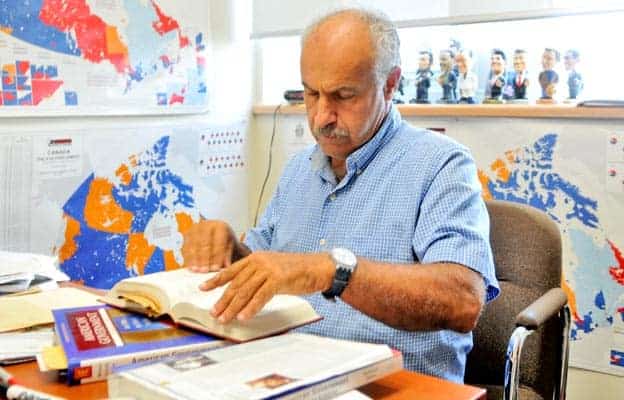Developmental service workers took to the streets on Tuesday decked out in blue balloons, stickers, and whistles for the Walk for Dignity, part of a province-wide initiative. The group walked from Gibson Park to downtown Elmira raising awareness about the critical need for increased funding for the developmental services sector.
![Developmental service workers from Elmira did the Dignity Walk to create awareness about the funding crisis in their field.[Whitney Neilson / The Observer]](https://www.observerxtra.com/content/images/wp-content/uploads/2014/05/post_dignity.jpg)
Deb Powell has worked in the industry for more than 20 years and says they’re in crisis for funding.
“The waitlist across the province is 23,000 long, 12,000 of those are waiting for residential services, like placement,” said Powell. “And there are none.”
Workers from the Elmira District Community Living participated in the local walk. Most of them have been in the field for 20-plus years.
Powell said they haven’t seen an increase in funding since 2007, which means they aren’t able to offer the quality of life people deserve, especially with high staff turnover rates.
“Put it in places to retain the workers because we cannot keep workers. It’s a revolving door, retention of staff. We’re trained and we’re trained well. Keep us around, we’re worth it.”
Developmental service workers and the union that represents them, the Ontario Public Service Employees Union (OPSEU), met with provincial legislators on September 18 at Queen’s Park to discuss the challenges facing the field.
“They were all in agreement that there definitely is a crisis within this field,” said Powell. “They formed a select committee, which was representatives from the three parties. And their interim report came out and said ‘indeed these people, this field, this sector is in dire straits.’”
The Select Committee on Developmental Services released the 54-page report on March 6, which outlines the issues facing caregivers of people with developmental disabilities, such as being denied services because they turned 18 or being on a waiting list for services for 10 years, due to lack of staff and funding. Many people who offered testimonies for the report indicated they had sold their homes, quit their jobs, and gone into massive debt to care for their child, well into adulthood.
Powell said the Ontario government proposed an $810-million budget for the sector over the next three years, but they need it now. She said they’re also pushing for the funds to go to non-profit agencies, instead of people making a profit off of looking after vulnerable people.
Their slogan, “dignity is not optional” hopes to inspire the government to increase funding, allowing these workers to instill dignity in the people they support, and their families.
Approximately 62,000 adults and 28,000 children with developmental disabilities live in Ontario. Of them, 18,000 are supported in group homes.
“We are so short-staffed and many of the people are isolated in their own homes, they don’t get out,” she explained. “We can afford to care.”
Powell decided to follow this career path because it seemed like a challenge, something it remains more than 20 years later.
“In the bigger scheme of things, it’s all about human rights for me. Everybody should be treated the same, regardless of ability, disability, creed, race, religion. It doesn’t matter to me.”
As someone passionate about human rights, she’s spent a lot of time fighting on behalf of the people she supports. Now, she’s hoping the people of Ontario will help this cause by voting in the upcoming provincial election.
“It’s very important for people to vote,” said Powell. “Look at the platforms for the three parties. I encourage people to look at many different sources of information and make their decision, and most importantly, get out on June 12 and vote.”









